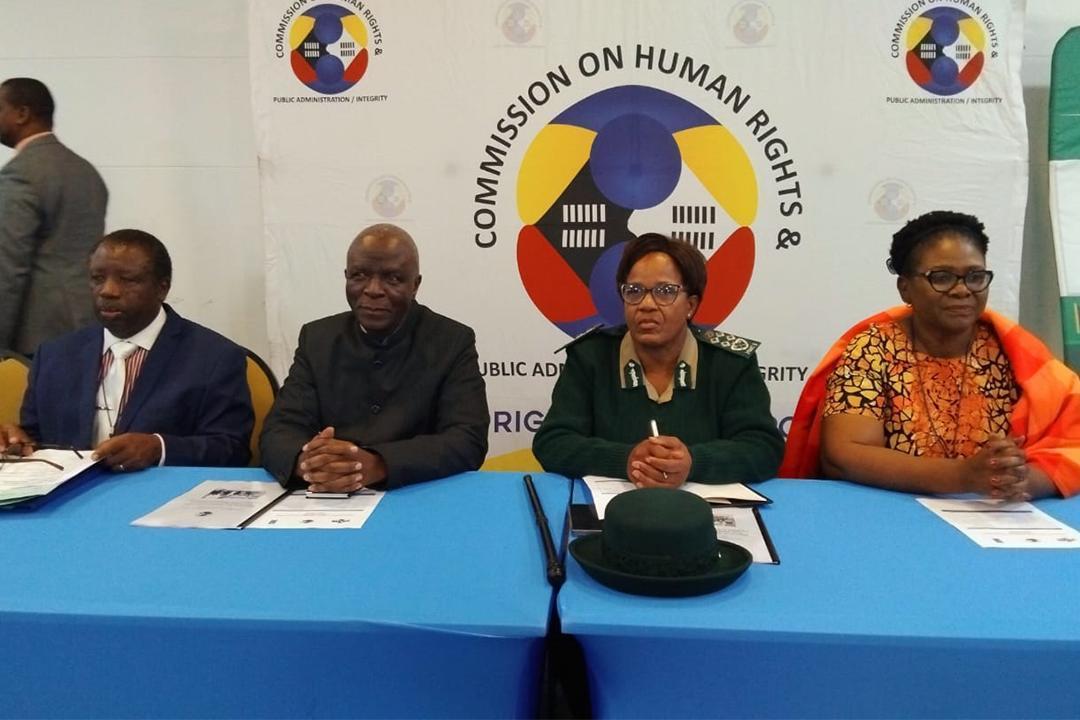Africa-Press – Eswatini. A major justice reform initiative is gaining momentum in Eswatini, as government institutions and human rights bodies collaborate to address the growing crisis of prolonged pre-trial detention in the country’s correctional facilities.
This comes in the wake of the Presentation of the Correctional Pre-Trial Detention Assessment Report, which took place at the UN Building in Mbabane. The event was attended by Minister of Justice and Constitutional Affairs HRH Prince Simelane, Honourable Members of the Justice Portfolio Committee from both Houses of Parliament, Esteemed Commissioners, the Commissioner General of Correctional Services and her Executive, the UN Deputy Resident Representative, the Principal Secretary, the Director of Public Prosecutions, and representatives of key justice stakeholders.
The newly released Pre-Trial Detention Assessment Report, commissioned by the Commission on Human Rights and Public Administration/Integrity, shines a spotlight on systemic challenges delaying justice, while offering hope through practical, collaborative solutions.
According to the report, 466 inmates across nine correctional facilities have been held in custody for over 12 months without the finalisation of their cases some for as long as six years. These prolonged delays violate Section 21 of the Constitution, which guarantees the right to a fair and speedy trial.
“The number of those awaiting trial now exceeds those serving sentences,” noted the Minister. “This increases costs on the state in terms of transportation and meals, and we must find alternative, sustainable solutions.”
As part of long-term efforts to resolve the crisis, the Minister revealed that Eswatini is preparing to sign a Memorandum of Understanding with Morocco, a country known for successfully integrating traditional leaders such as chiefs into local justice systems a model also used in Zambia.
The report further revealed that many of those caught in pre-trial detention are from low-income backgrounds, unable to afford bail or secure legal representation. Vulnerable groups such as juveniles, women, and persons with mental health conditions were found to be disproportionately affected.
In response, the Ministry of Justice has already begun implementing several interventions, including the introduction of electronic case management systems and the expansion of legal aid schemes both aimed at improving access to justice. The Commission praised these efforts, emphasising the importance of building a justice system rooted in buntfu (humanity), accountability, and equal access.
“We must ensure that no one is left behind. Collaboration among courts, prosecutors, legal aid services, and correctional officers is essential,” the Commissioner said during the stakeholder presentation.
The report also proposed several key reforms, including:
Restoring the jurisdiction of Magistrate Courts to handle serious cases.
Addressing the shortage of judicial officers.
Streamlining the allocation of trial dates.
Increasing support for pro doe (state-funded) counsel.
Enhancing coordination among justice sector institutions.
Another pressing issue raised during the launch was the overcrowding of correctional facilities. The total inmate population stands at 4,633, well above the system’s designed capacity of 3,090. At facilities like Matsapha and Nhlangano, populations exceed double the intended capacity.
Assistant Commissioner Jetrom Ndzingane, Officer-in-Charge at Big Bend Correctional, cited vehicle shortages as a major operational challenge, making it difficult to transport inmates to court on time further contributing to delays.
Despite the grim statistics, the tone of the launch was one of optimism and action. With support from the United Nations Development Programme (UNDP) and renewed commitment from government and justice sector stakeholders, Eswatini is taking significant steps to fix a justice system under strain.
This renewed focus brings hope that those still waiting for their day in court will finally see progress and that justice in Eswatini will become faster, fairer, and more inclusive.
“Justice must not only be done; it must be done in time and with dignity,” the Commissioner affirmed.
For More News And Analysis About Eswatini Follow Africa-Press







